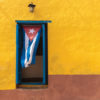Policymaking is far from the only context in which communications research can ‘matter’ to the wider, non-academic world, but it is a powerful and obvious one. It is especially important in an environment in which communications and media technologies—and the regulatory frameworks that surround them—are in flux. There is manifest need for better understanding of changes in media and communications environments and the larger public spheres they structure. These dynamics are inevitably complex, and call into play relationships between old and new technologies, social practices, institutions, markets, and regulation.
This essay forum, Making Communications Research Matter, is intended to advance a dialogue about the relationship between communications research and policymaking. Although the value of a close relationship between the two seems self-evident, the idealized model of policymaking informed by robust, objective research inputs and expert debate remains just that—an ideal. In practice, a wide range of factors intervene: political, institutional, and cultural. Expectations of research are not static—indeed evidentiary standards for policy arguments have risen dramatically in the past two decades in both regulatory agencies and the courts. What counts as legitimate knowledge has also changed in this process, with economic and legal analysis achieving clear dominance over other kinds of discourse. Despite the role of research as, increasingly, a condition of legitimacy in policymaking, policy researchers nonetheless tend to describe a vexed or—in important ways—failed relationship between the two.
This forum takes the idealized view of the relationship between research and policymaking as a point of departure—in large part because it is so often articulated in legislation, judicial decisions, and agency practice, and so often subscribed to by academic researchers themselves. The essays gathered here test that view against a range of concrete, often personal, experiences of the research/policy intersection—whether successful, failed or ambivalent. Our goal is to explore the edges of this question not for the purpose of rejecting the model, but—hopefully—to empower researcher to navigate these encounters more effectively.
This project is envisioned as an ongoing set of commentaries by participants within the field—researchers, advocates, and policymakers. The first round of essays was completed for the February 2008 Social Science Research Council ‘Necessary Knowledge for a Democratic Public Sphere’ collaboration workshop at the Annenberg School for Communication, University of Pennsylvania. Six of the essays were published in April in the International Journal of Communication and are now featured as the opening essays of the forum
Our thanks to Larry Gross, of the Annenberg School for Communication, University of Southern California, and Arlene Luck, of the International Journal of Communication. We’ll continue the collaboration between IJoC and this forum also in the future. In addition, thanks to Minna Aslama of SSRC and Libby Morgan of Annenberg’s Center for Global Communication Studies who have contributed to the development of this forum.













